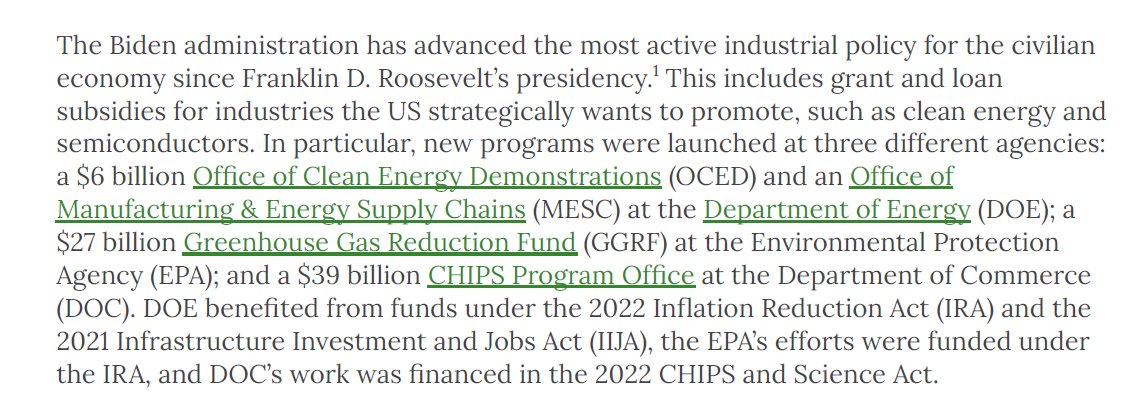What do collapses of Silicon Valley Bank and Signature mean for Biden's industrial policy?
Over at @DemJournal, @STOmarova and I have thoughts, in this new essay:
Industrial Policy Requires Public, Not Just Private, Equity.
🧵👇
democracyjournal.org/arguments/indu…
Over at @DemJournal, @STOmarova and I have thoughts, in this new essay:
Industrial Policy Requires Public, Not Just Private, Equity.
🧵👇
democracyjournal.org/arguments/indu…
We argue that the turn to industrial policy can play a vital role in reconnecting finance to the real economy—but only if industrial policy is seen holistically as a comprehensive economic development strategy, and not just as a way to onshore the making of particular widgets.
Thus, the attaching of conditions to industrial policy loans and grants should be seen as a normal part of development lending (as it is at World Bank and elsewhere) - not a distraction. @lenorepalladino and @Isabel_Estevez_ have been really sharp on this.
rooseveltinstitute.org/publications/t…
rooseveltinstitute.org/publications/t…
Industrial policy is about winding desirable industries up, but also winding undesirable industries down, as @stephsterlingdc and I write here.
rooseveltinstitute.org/publications/a…
rooseveltinstitute.org/publications/a…
Saule and I point to the crypto industry as a good candidate for wind-down.
Its benefits were oversold, and it's blocking climate progress in key locales like the Intalco aluminum plant in WA state.
Its benefits were oversold, and it's blocking climate progress in key locales like the Intalco aluminum plant in WA state.

Biden's recent budget moves in interesting directions here, with taxes on crypto electricity usage, as @jimtankersley reported.
https://twitter.com/jimtankersley/status/1633879074329485313
We conclude on the value of a "public option for private equity" in the industrial policy space, including through a National Investment Authority. This can help get around capacity constraints in existing federal agencies, and revives and improves on best practices from FDR era.
For more on the NIA, see @TheProspect roundtable on the National Investment Authority, with @rkuttnerwrites @rgunns @Ben_Beachy @MarkVinPaul @lenorepalladino @theilmatic @dduboissims @Isabel_Estevez_
prospect.org/economy/public…
prospect.org/economy/public…
Movement towards NIA-like institutions can happen even in divided government, as the 1932-33 genesis of the Reconstruction Finance Corporation shows.
politico.com/news/magazine/…
politico.com/news/magazine/…
At a time when there's more agreement on the need for speed in clean energy deployment, it's important to note finance and financial elites can be a key source of slowdown, as @joeldodge07 @michaelsjoel @lenorepalladino and I argue here.
rooseveltinstitute.org/publications/p…
rooseveltinstitute.org/publications/p…
To read the essay by Saule and me in full, head over to @DemJournal.
democracyjournal.org/arguments/indu…
democracyjournal.org/arguments/indu…
@threadreaderapp unroll
• • •
Missing some Tweet in this thread? You can try to
force a refresh










